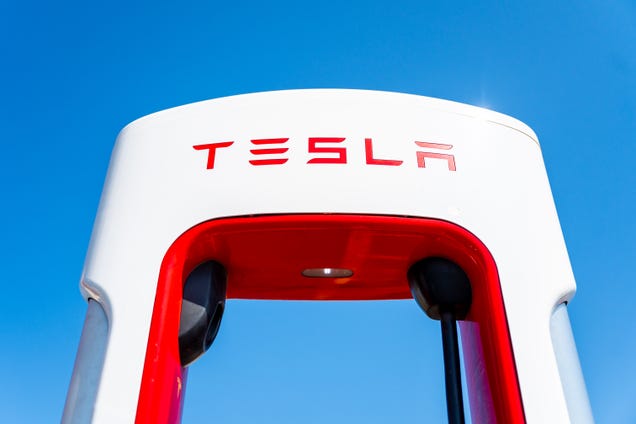Elon Musk said Wednesday that his company plans to soon roll out a taxi service similar to Uber (UBER) in two states that are friendly to self-driving cars.
“We've been thinking about this for a long time…we expect to roll out ride hailing in California, Texas next year,” Musk said during Tesla's (TSLA) third-quarter earnings call.
The Tesla CEO added that he is unsure about gaining approval in California, where regulators typically take longer to approve the use of such technology. But Musk thinks a ride-hail network will “definitely” be available in Texas — where Tesla is headquartered — next year, along with possibly “some other states.”
Later in the call, after another executive reassured investors that Tesla will follow each state's respective guidelines, Musk said that “we think” driverless Teslas will start making paid rides “sometime next year.”
That's one of the most optimistic timelines Musk, a notoriously overpromiser, has presented to investors.
Several weeks ago, he said Tesla expects to receive approval from those states to allow Model Y and Model 3 vehicles equipped with a “fully autonomous, unattended” full self-driving mode next year. Tesla's other vehicles – the Model S, Model X and the Cybertruck – would gain access later, according to Musk.
Tesla is operating its own rideshare network for employees at its facilities in California's Bay Area, using current models and a driver at the wheel, executives said Wednesday. Palo Alto, California, is in talks to use Tesla's recently unveiled robotaxi in its rideshare program, but the company doesn't plan to start making these cars until 2026.
Many valuations of Tesla's current and future share price take into account a planned robotaxi network, which Musk has called a “combination of Airbnb and Uber.”
“This is huge!” Tasha Keeney, director of investment analysis at Ark Investment Management, wrote on[T]This is a confirmation that they can also start a taxi service. Autonomous driving should be a $10+ trillion opportunity,” she added.
But gaining regulatory approval — especially in California — is expected to be challenging given Tesla's numerous lawsuits and investigations into its technology.
Federal regulators launched a new investigation into Tesla's technology last week after one of its vehicles equipped with Full Self-Driving fatally struck a pedestrian. The National Highway Traffic Safety Administration has opened at least five investigations into Tesla.
In April, the NHTSA said it linked Tesla's Autopilot software to more than 200 crashes and 29 deaths and opened more than 50 special crash investigations into Tesla vehicles believed to be linked to Autopilot. The Wall Street Journal (NWSA) reported in July that more than 1,200 Autopilot-related crashes have been reported to the NHTSA since 2021.
Tesla has also been accused of false advertising by California's Department of Motor Vehicles and investigated by the attorney general's office for its marketing practices regarding its technology. The Justice Department has opened a separate investigation into Musk and Tesla over their claims about Autopilot.
Tesla is facing legal action in both federal and state court over incidents related to its driver assistance technology. One of the latest lawsuits involves Landon Emrby, who died in 2022 after a Model 3 Autopilot struck the rear of his motorcycle. In April, the Austin, Texas-based automaker settled with the family of 38-year-old Apple engineer Walter Huang, who crashed into a barrier on a California highway in 2018 while using Autopilot.
For the latest news, Facebook, Tweet and Instagram.

